Latin American and Caribbean Group
The Group of Latin America and Caribbean Countries, or GRULAC, is one of the five United Nations Regional Groups composed of 33 Member States from Central and South America, as well as some islands in the West Indies. Its members compose 17% of all United Nations members.
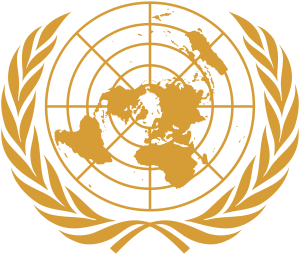 | |
| Formation | 1964 |
|---|---|
| Type | Regional Group |
| Legal status | Active |
The Group, as with all the regional groups, is a non-binding dialogue group where subjects concerning regional and international matters are discussed. Additionally, the Group works to help allocates seats on United Nations bodies by nominating candidates from the region.[1][2]
Member States
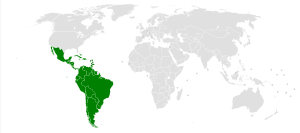
The following are the Member States of the Latin American and Caribbean Group:[3][4]
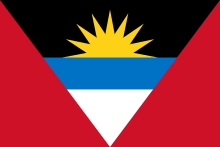

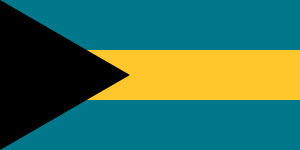
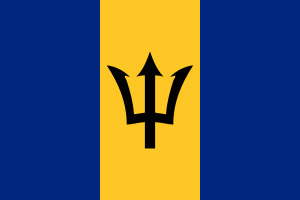
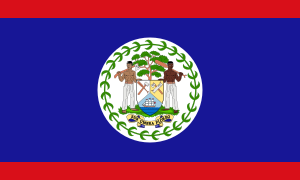
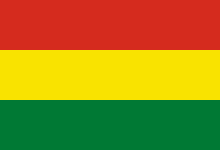



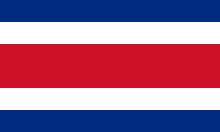

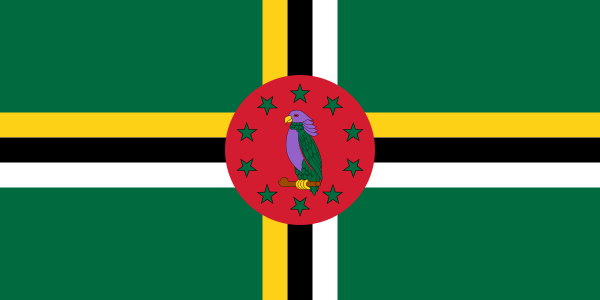


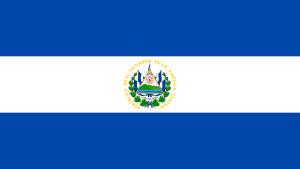
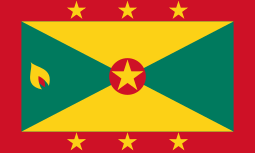
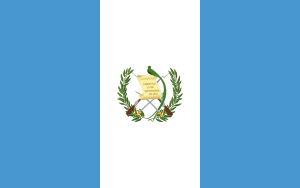
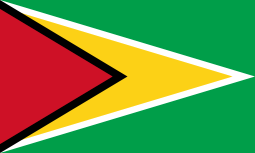
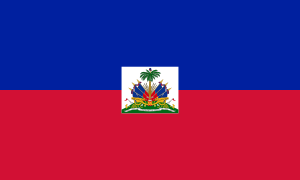
.svg.png)
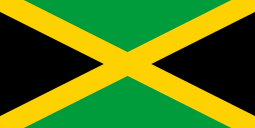



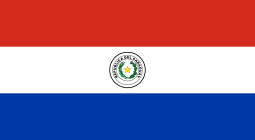

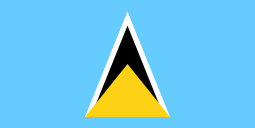
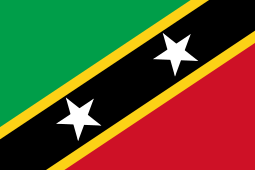
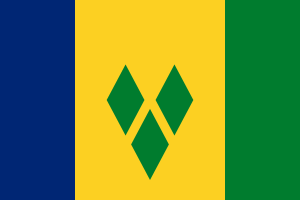
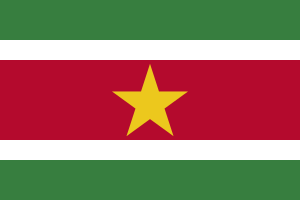
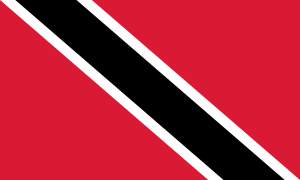


Representation
Security Council
The Latin American and Caribbean Group currently holds two seats on the Security Council, both non-permanent. The current members of the Security Council from the Group are:[5][6]
| Country | Term |
|---|---|
| 1 January 2019 – 31 December 2020 | |
| 1 January 2020 – 31 December 2021 |
Economic and Social Council
The Latin American and Caribbean Group currently holds 10 seats on the United Nations Economic and Social Council. The current members of the Economic and Social Council from the Group are:[7][8]
| Country | Term |
|---|---|
| 1 January 2018 – 31 December 2020 | |
| 1 January 2019 – 31 December 2021 | |
| 1 January 2020 – 31 December 2022 | |
Human Rights Council
The Latin American and Caribbean Group currently holds eight seats on the United Nations Human Rights Council. The current members of the Economic and Social Council from the Group are:[9][10]
| Country | Term |
|---|---|
| 1 January 2018 – 31 December 2020 | |
| 1 January 2019 – 31 December 2021 | |
| 1 January 2020 – 31 December 2022 | |
Presidency of the General Assembly
Every five years in the years ending in 3 and 8, the Latin American and Caribbean Group is eligible to elect a president to the General Assembly.[11]
The following is a list of presidents from the Group since its official creation in 1963:[12]
| Year Elected | Session | Name of President | Country | Note |
|---|---|---|---|---|
| 1963 | 18th | Carlos Sosa Rodríguez | ||
| 1968 | 23rd | Emilio Arenales Catalán | ||
| 1973 | 28th | Leopoldo Benítes | Also chaired the sixth special session of the General Assembly | |
| 1978 | 33rd | Indalecio Liévano | ||
| 1983 | 38th | Jorge E. Illueca | ||
| 1988 | 43rd | Dante M. Caputo | ||
| 1993 | 48th | Samuel R. Insanally | ||
| 1998 | 53rd | Didier Opertti | Also chaired the 10th emergency special session of the General Assembly | |
| 2003 | 58th | Julian Robert Hunte | ||
| 2008 | 63rd | Miguel d’Escoto Brockmann | ||
| 2013 | 68th | John W. Ashe | ||
| 2018 | 73rd | María Fernanda Espinosa | ||
| Future | ||||
| 2023 | 78th | TBD | TBD | |
| 2028 | 83rd | TBD | TBD | |
| 2033 | 88th | TBD | TBD | |
Role
The Group plays a major role in promoting the region's interests. It provides a forum for Member States to exchange opinions on international issues, carry out follow-up on the topics that are being discussed in international organisations, build common positions on complex issues and prepare statements reflecting the joint position of the Group.[1][13]
However, most importantly, the Group allows for the discussion and coordination of support for candidates for different United nations organisations from the region.[2]
Regular meetings of the Group take place in Geneva. The most common topics discussed at these meetings are human rights, environment, intellectual property, labour rights, trade and development and telecommunications.[1]
Locations
The Group maintains various offices across the globe:[1]
- Rome
- The two offices in Rome focus on bilateral and multilateral issues, particular those of the United Nations agencies based in Rome.
- Vienna
- The office in Vienna focuses candidate memberships to the Group. It also deals with issues relating to: the United Nations Office at Vienna, the International Atomic Energy Agency, the Preparatory Commission for the Comprehensive Nuclear-Test-Ban Treaty Organization, the United Nations Office for Outer Space Affairs and the United Nations Industrial Development Organization. The office also acts as the Group's liaison to the Group of 77 and China and the Non-Aligned Movement
- New York
- The office in New York deals primarily with candidacy issues and other general topics.
References
- "Latin American and Caribbean Group (GRULAC)". Ministry of Foreign Affairs of Colombia. Ministry of Foreign Affairs of Colombia. n.d. Retrieved 28 February 2019.
- Agam, Hasmy, and Sam Daws, Terence O'Brien and Ramesh Takur (26 March 1999). What is Equitable Geographic Representation in the Twenty-First Century (PDF) (Report). United Nations University. Retrieved 27 February 2019.CS1 maint: uses authors parameter (link)
- "United Nations Regional Groups of Member States". United Nations Department for General Assembly and Conference management. United Nations. n.d. Retrieved 28 February 2019.
- United Nations Handbook 2018–19 (PDF) (56 ed.). Wellington: Ministry of Foreign Affairs and Trade of New Zealand. 2018. pp. 15–17. ISSN 0110-1951.
- "Current Members". United Nations Security Council. United Nations. n.d. Retrieved 28 February 2019.
- "General Assembly Elects Estonia, Niger, Saint Vincent and Grenadines, Tunisia, Viet Nam as Non-Permanent Members of Security Council for 2020-2021". United Nations Meetings Coverage & Press Releases. United Nations. 7 June 2019. Retrieved 1 January 2020.
- "Members". United Nations Economic and Social Council. United Nations. n.d. Retrieved 26 February 2019.
- "General Assembly Elects 19 Economic and Social Council Members to Terms Beginning 1 January 2020, Adopts Resolution Commemorating Signing of United Nations Charter". United Nations Meetings Coverage & Press Releases. United Nations. 14 June 2019. Retrieved 1 January 2020.
- "Current Membership of the Human Rights Council, 1 January - 31 December 2019 by regional groups". United Nations Human Rights Council. United Nations. n.d. Retrieved 26 February 2019.
- "General Assembly Elects 14 Member States to Human Rights Council, Appoints New Under-Secretary-General for Internal Oversight Services". United Nations Meetings Coverage & Press Releases. United Nations. 17 October 2019. Retrieved 1 January 2020.
- Wanza, Serah N. (27 November 2017). "What Are The Five Regional Groups of the United Nations?". Worldatlas. Worldatlas. Retrieved 26 February 2019.
- "Past Presidents". United Nations General Assembly. United Nations. n.d. Retrieved 27 February 2019.
- "Group of Latin American and Caribbean Countries in the United Nations (GRULAC)". Food and Agriculture Organization of the United Nations. Food and Agriculture Organization of the United Nations. n.d. Archived from the original on 25 October 2014. Retrieved 28 February 2019.